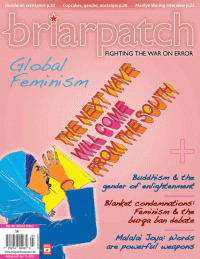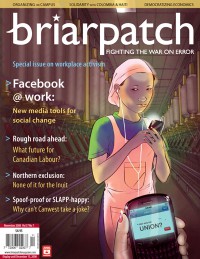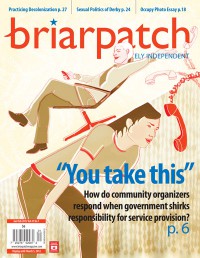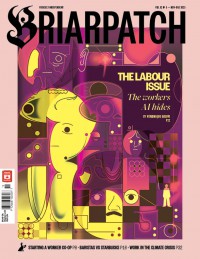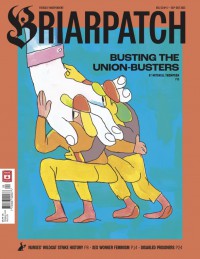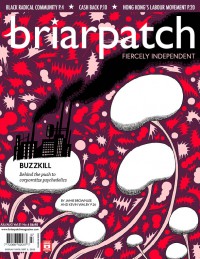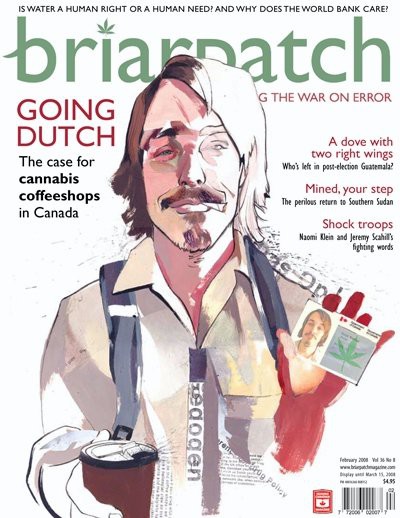
Cannabis coffeeshops
In this issue, Briarpatch’s intrepid contributors “go Dutch” to make the case for cannabis coffeeshops in Canada, brave the front-line violence of Guatemala’s recent elections, mark the 10th anniversary of the Mine Ban Treaty with South Sudanese refugees in Ethiopia, assess the fighting words of shock troops Jeremy Scahill and Naomi Klein, and still make it home in time for dinner.
-
 Magazine
MagazineLetter from the editor
The Harper Government’s performance at the UN climate change conference in Bali in December certainly didn’t make this country any friends. Alongside Japan and the U.S., our official delegation—which, unprecedentedly, did not include NGOs or opposition politicians—did its utmost to scuttle the world’s last, best hope for averting extreme climate change, and only bowed to global consensus on a watered-down agreement in the face of concerted domestic and international pressure.
-
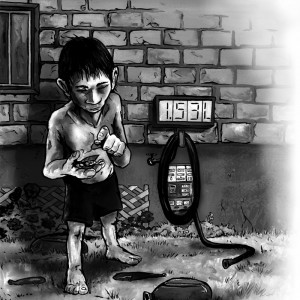 Magazine
MagazineLiquid assets
Despite much ado over the world’s dwindling oil supplies, the real lifeblood of the planet is water—and we are quickly draining the well dry.
-
 Magazine
MagazineRemembering Maria Fischer
Briarpatch’s founding editor, Maria Fischer, died peacefully in her home in Ladysmith, B.C. on October 3, 2007, at the age of 87.
-
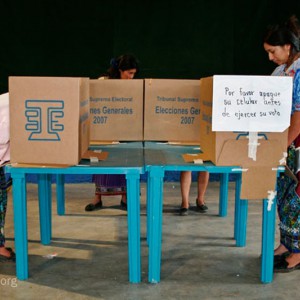 Magazine
MagazineA dove with two right wings
With the dust of the fall 2007 elections settling, many Guatemalans are breathing a sigh of relief. Another violent campaign period has come and gone and, although more than 50 candidates and activists were assassinated in the process, the lesser of evils has come out on top.
-
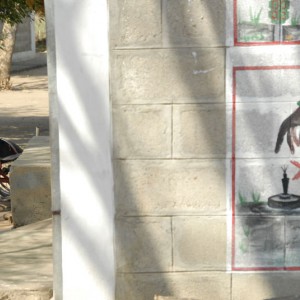 Magazine
MagazineRetracing our steps
In the wake of the 10th anniversary of one of Canada’s greatest foreign-policy successes, the ripple effects of the Ottawa Treaty, also known as the Mine Ban Treaty, are still being felt among the sea of 65,000 south Sudanese refugees living in Ethiopia.
-
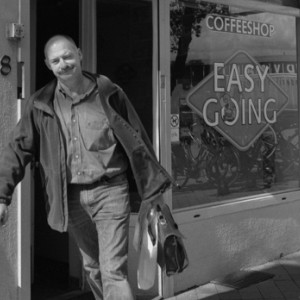 Magazine
MagazineDa’s toch dope, man!
The Netherlands is the only country in the world to allow over-the-counter sale of cannabis products. In the 1970s, when cannabis was becoming the drug of choice of young people in the Netherlands, for reasons of pragmatism and public health the Dutch government amended the Opium Act to distinguish soft drug use from hard-drug use and, deeming cannabis no more risky than alcohol, created the coffeeshop system.
-
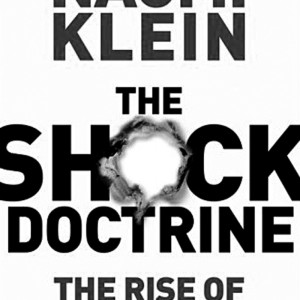 Magazine
MagazineThe shock doctrine
Book reviews of Jeremy Scahill’s Blackwater: The rise of the world’s most powerful mercenary army and Naomi Klein’s, The Shock Doctrine: The rise of disaster capitalism.

